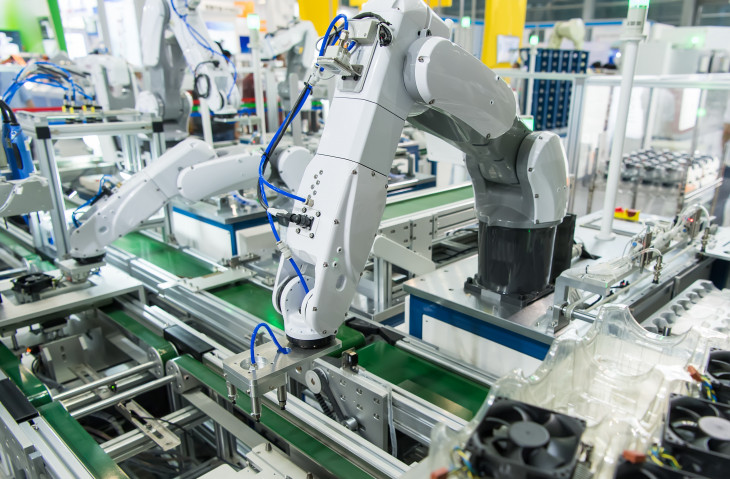Industrial production managers require interpersonal and leadership skills to supervise employees in a manufacturing atmosphere. These managers often require one to five years of relevant work experience and a bachelor's degree.
Work Experience
A variety of industrial production managers start out as production workers and then rise through the ranks. They often advance to an initial supervisory position prior to being selected for permanent management. The majority earns a business management degree from college or increases their promotional chances by taking company sponsored classes.
Production managers who immediately join a firm post college graduation may take a position as a first-line supervisor prior to starting their jobs as production managers.
Certain managers start working at a company right after graduate school or college. They spend their initial few months in training programs, becoming familiar with company policies, safety regulations and the production process. Smaller time periods may be spent in large companies working in other departments to learn about the company including accounting or purchasing.
Education & Training
Most employers prefer that managers have a minimum of a bachelor's degree. The options for the degree can be in any field. A common bachelor's degree for industrial production managers is in industrial engineering or in business administration. Production workers who have numerous years of experience may become a production manager by taking additional management courses. Certain large corporations or industrial plants may desire that managers have their MBA or Master of Business Administration or a graduate degree in industrial management since they have more responsibilities to oversee.
Licenses, Certifications, and Registrations
Industrial production managers can earn certifications that show a higher competency level in quality management systems, even though such certification is not required. A CPIM or Certified in Production and Inventory Management credential is offered by the Association for Operations Management. There are credentials additionally offered in quality control by the American Society for Quality. Each certification requires that particular work experience is available prior to applying for the credential. Therefore, these designations are typically not awarded prior to entering the occupation.
Skills and Qualities that will Help
Interpersonal skills: Excellent communication skills are required in industrial production settings to ensure that work can be successful with other department managers and the senior-level management within a company.
Leadership skills: Industrial production managers must keep their employees on task to ensure things keep running smoothly while directing and motivating their crew.
Problem-solving skills: It is necessary that production managers can immediately identify issues and solve them. If a product has a defect for instance, the manager can determine if it is the result of the production equipment or if it was an isolated incident.
Time-management skills: In order to satisfy production deadlines, managers must manage their employees' time carefully as well as their own.









